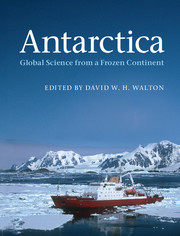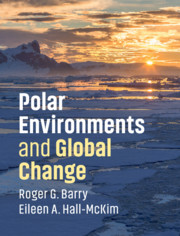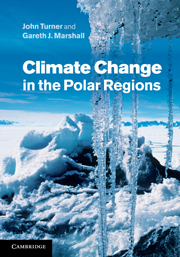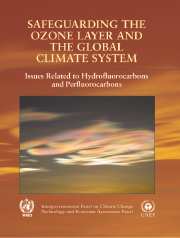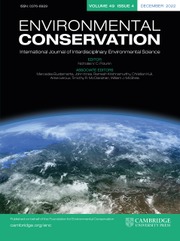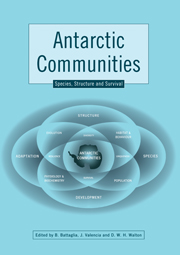Antarctica
Antarctica is the coldest and driest continent on Earth – a place for adventure and a key area for global science. Research conducted there has received increasing international attention due to concerns over destruction of the ozone layer and the problem of global warming and melting ice shelves. This dramatically illustrated new book brings together an international group of leading Antarctic scientists to explain why the Antarctic is so central to understanding the history and potential fate of our planet. It introduces the beauty of the world's greatest wilderness, its remarkable attributes and the global importance of the international science done there. Spanning topics from marine biology to space science this book is an accessible overview for anyone interested in the Antarctic and its science and governance. It provides a valuable summary for those involved in polar management and is an inspiration for the next generation of Antarctic researchers.
- Demonstrates why Antarctic science has bearing on global problems, allowing the reader to understand how even remote changes in the Antarctic such as the break-up of the ice shelf can have real impacts on everyday life
- Illustrated in colour throughout, emphasising the outstanding natural beauty of Antarctica
- Presents some of the key evidence for climate change over a range of different periods in an understandable format
- Scientists from over 30 countries have worked together for 50 years in Antarctica: this book brings together this vital, co-operative research to provide unique information on key global issues
Reviews & endorsements
"From 'why is Antarctica so dry?' to the current state of the Antarctic Treaty, and everything conceivable in-between (history, geology, oceanography, biology, climate-change and much more) this is the book if you want to understand the significance of Antarctica for the future of Planet Earth. Well illustrated, and well written – I felt completely up to date when I finished reading it."
Professor Sir John Lawton CBE FRS, last chair of the Royal Commission on Environment Pollution
"This is an excellent review of key multidisciplinary collaborative research and geopolitics in Antarctica involving more than 30 countries, addressing global issues in climate, oceans, biodiversity, solar system, tourism and more. Of importance to contemporary society, it is a valued compendium."
Alan K. Cooper, Consulting Professor, Stanford University and recipient of the second SCAR medal for International Scientific Coordination
"Antarctica is a conundrum. It is distant, yet it will shape our children's future; it is mysterious, yet a treasure trove for science; it is the focus of calculated geopolitical interest, yet the exemplar of 'world governance'. In this well-presented and readable book, the world's leading experts on Antarctic science showcase why the uninhabited seventh continent is central to the present and future of human interests and wellbeing."
Professor Chris Rapley CBE, University College London, former Director of the British Antarctic Survey and former President of SCAR
"Nicely presented … quality colour illustrations … anyone with a serious interest in Antarctica will find this book worthwhile."
Peter Blackett, Open University Geological Society Journal
"Science in Antarctica is an international endeavor, and that is also true of this book … The book is lavishly illustrated with color photos, maps, and graphs … Recommended. All levels/libraries."
W. L. Cressler, III, Choice
"… a timely addition to the literature on Antarctica … The illustrations are by and large excellent … This volume belongs on the bookshelves of researchers who wish to learn more about Antarctica outside their own disciplines, the lay public interested in the continent as a whole, non-governmental organizations, and the management and support staff for the various national programs. I highly recommend this book."
David H. Elliot, Arctic, Antarctic, and Alpine Research
"… a handsomely produced volume, filled with a large number of excellent-quality colour photographs and figures, which can just as easily be in a high school or public library as in a university professor’s research collection … the writing is clear and simple, and accessible to newcomers, students, as well as seasoned scientists. The overriding message throughout much of the writing is that Antarctica is critical to our understanding of global environmental change … I recommend you buy a copy and convince your library to do the same. This book would also make a welcome gift … fills an important niche."
John P. Smol, Polar Research
"There is a lot of great information here and I must admit that I am now more of a believer in climate change than I was before I started reading this book. It's scary, but unless we understand the problem, we can never find the solution. If you truly want to gain an understanding of what is happening and why, I would strongly encourage you to read this book."
Geoffrey Carpentier, The Canadian Field-Naturalist
Product details
May 2013Hardback
9781107003927
352 pages
253 × 193 × 19 mm
0.93kg
10 b/w illus. 185 colour illus. 10 maps 10 tables
Available
Table of Contents
- Introduction David Walton
- 1. Discovering the unknown continent David Walton
- 2. The continental jigsaw Brian Storey
- 3. Ice with everything Valerie Masson-Delmotte
- 4. Climate of extremes John Cassano
- 5. Stormy and icy seas Eberhard Fahrbach
- 6. Life in a cold environment Peter Convey, Angelika Brandt and Steve Nicol
- 7. Space research from Antarctica Louis Lanzerotti and Alan Weatherwax
- 8. Living and working in the cold Lou Sanson
- 9. Scientists together on the ice Colin Summerhayes
- 10. Managing the frozen commons Olav Orheim
- 11. Antarctica and global change Alan Rodger
- Appendix: visiting Antarctica
- Appendix: further reading.

